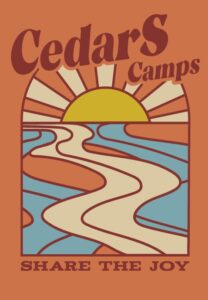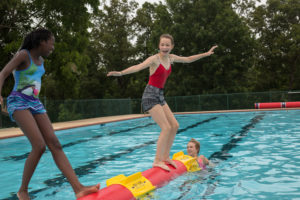Younger Class Lesson ideas for Sunday School on “Probation after Death”
Possible Younger Sunday School Class Lesson ideas for the Christian Science Quarterly Bible Lesson on
“Probation after Death”
for Sunday, April 28, 2024
by Kerry Jenkins, CS, of House Springs, MO
kerry.helen.jenkins@gmail.com • 314-406-0041
PYCL #1: Direct our lesson to how to perform our best in daily life.
I might not address this title directly with the very small ones, but with slightly older children we can ponder what the point is of thinking about this subject.
Why is it of interest, potentially? What is “probation”: A trial period to test a person’s suitability for something. For many children there is not much thought about what happens after we die, and unless there is natural interest, I think we can direct our lesson towards how it might apply in daily life.
When we are going through a waiting, or trial period, we are usually trying to perform our best. We want to show what we are capable of, and show how we can improve, learn, and grow. So this Bible lesson usually has a focus on progress. This lesson is no exception.
Why is progress important? Have any of them ever felt the funk of not being able to push past a certain point. For example they can’t seem to improve their speed as a sprinter, or distance runner. Or, maybe they are learning a particularly challenging piece of music and they have hit a wall because of some technique that is hard to master. These are just two examples. Can it get discouraging?
What can we do when we seem unable to push past a certain point?
Can we just jump forward and move to the next challenge? No. We have to master that challenge and grow with persistence, patience, and without discouragement.
Our consistent joy actually depends on constant spiritual progress. Without this, we eventually feel stagnant and unsatisfied.
What does this lesson teach us about persistence and progress?
In the Responsive Reading we are encouraged to “be strong”, “put on the whole armour of God” and much more. (Eph. 6:10-17).
There are many citations that speak to the importance of progress and spiritual growth both in the Bible and in Science and Health. It would be cumbersome to put all of them down here. But one iconic passage can be committed to memory as it does encapsulate this idea: “What we most need is the prayer of fervent desire for growth in grace, expressed in patience, meekness, love and good deeds.” (cit. S7/4:3-5, 32) Talk about what it means to express these qualities, make a list of things that we can do to express them.
PYCL #2: With the littles talk about the importance of armor. Bring supplies to create some.
What is in this kind of armor that protects us as it is spoken of in the Responsive Reading/Eph. 6:10-17? What does it protect us from?
How would they describe the “whole armor of God”?
Go through the list of armor there and feel free to bring in supplies, cardboard, paper grocery bags, scissors and tape to create shields, armor, and so on.
You can write on the “breastplate” truth, and the qualities of truth and discuss how truth can protect us.
This can expand to all the other pieces of armor mentioned, or ones you make up together!
PYCL #3: It’s worth productively discussing what we are “wrestling against”. (RR/Eph 6:12).
Without just bypassing the challenges that we struggle to resist, whatever they may be: frustration, shyness, identity, overeating, being tired…what are some productive and progressive ways to actually address these challenges. There is no such things as “human footsteps” versus “prayer”.
Our so-called human footsteps are the result of prayer, so they are spiritually rooted. So just quoting Isaiah 40:31/citation B21 as a solution to being tired can bypass the human need that a student might have in overcoming a challenge of feeling constantly tired.
Instead, talk about the beliefs behind being tired: amount of sleep (is this a question of obedience — a spiritual quality?), too much screen time right before bed? (screens are not inherently evil, do they have their appropriate space?
Is there a reasonable balance to be found?
Is balance a reflection of Soul/Mind/Principle? How so?).
This is just one example of how we can wrestle in a way that is compassionate and gives them something to ponder rather than something to simply “deny” without careful thought.
PYCL #4: Try to have access to a small whiteboard as an illustration of how we must strive to understand the laws behind Jesus’ healings.
Citation S3/3:7 is a fun one to do with littles and older ones alike. You can read from Science and Health page 3, starting with line 4 “Who would stand before the blackboard and pray the principle of mathematics to solve the problem?”
With the littles try to have access to a small chalkboard or whiteboard.
Give the students some simple math problems and maybe some with which they are not familiar. Now stand back and say something like “Alright, let’s ask God/Mind to solve this math problem”. Then you can dramatically pause.
The idea is to use this as an illustration of how we must strive to understand the laws behind Jesus’ healing work, to understand the law of divine Love.
We can only do this through practice! We learn more complicated math problems as we demonstrate our understanding of the simpler ones.
Share some examples of healing where you applied what you knew and understood at the time, and how that moved you forward to be ready for the next challenge that arose in your life.
PYCL #5: Show with a ball of yarn that mistakes are opportunities to learn, not cause shame.
One of the things about progressing is making what we term “mistakes”. Truly mistakes are opportunities to learn and not something to feel shame about.
We are not aiming for human perfectionism, our perfection is spiritual and is our innate wholeness or completeness, not our ability to do tasks with “perfection”, no mistakes.
In citation S11/240:19-32 Mary Baker Eddy talks about unsnarling our “errors”. Bring some lightly tangled yarn for the children to work on gently unsnarling.
Talk about what a “tangle/snarl” might look like in our daily life.
Perhaps we said something about someone that we regret saying. What should we do about it?
Maybe it involves an apology, but it also involves a fresh way to think about ourselves and others so that we progress and don’t find ourselves doing the same thing next time!
Just like the yarn, this is not something we can “muscle” our way through. Show them what happens if you get frustrated and pull too hard. You get knots that are even harder to untangle! Truth and Love are always the way to go, and lead to a smoother “ball of yarn” if you will!
Have fun at Sunday School!





